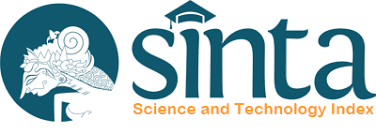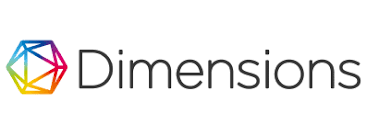Pengaruh Penggunaan Media Sosial Twitter Terhadap Partisipasi Online Budaya Pengenyahan (Cancel Culture) Di Indonesia
(1) Universitas Padjadjaran
(2) Universitas Padjadjaran
(3) Universitas Padjadjaran
(4) Universitas Padjadjaran
(5) Universitas Padjadjaran
(*) Corresponding Author
Sari
Budaya pengenyahan (cancel culture) merupakan istilah baru di media sosial terutama Twitter, yang memiliki definisi mengenyahkan atau memojokkan individu tertentu di media sosial, yang dilakukan secara bersama-sama. Tujuan dari penelitian ini yaitu untuk mengetahui bagaimana pengaruh penggunaan media sosial terhadap tingkat partisipasi online dalam budaya pengenyahahan pada penggunanya. Metode yang digunakan pada penelitian ini adalah metode kuantitatif dengan teknik nonprobabilitas kuota sampling. Teknik pengumpulan data yang digunakan berupa kuesioner online berjumlah 36 pertanyaan dan didapatkan responden sebanyak 221 orang. Penelitian ini menggunakan dua variabel eksogen; orientasi budaya pengenyahan dan penggunaan media sosial untuk menentukan pengaruh pada variabel endogen; partisipasi online budaya pengenyahan di media sosial Twitter. Hasil dari penelitian ini menjelaskan bahwa orientasi budaya pengenyahan bagi pengguna berpengaruh terhadap partisipasi online budaya pengenyahan di media sosial Twitter, juga penggunaan media sosial Twitter yang berpengaruh terhadap partisipasi online pengguna dalam budaya pengenyahan di media sosial Twitter.
Kata kunci : media sosial, twitter, partisipasi online, budaya pengenyahan
Teks Lengkap:
PDFReferensi
Acharya, A. S., Prakash, A., Saxena, P., Nigam, A., & Acharya, A. S. (2013). Sampling: Why and How of it? Symposium Sampling: Why and How of it? Indian Journal of Medical Specialities, 4(2), 330–333. http://dx.doi.org/10.7713/ijms.2013.0032
D. Clark, M. (2020). DRAG THEM: A brief etymology of so-called “cancel culture.” Communication and the Public, 5(3–4), 88–92. https://doi.org/10.1177/2057047320961562
Etikan, I. (2016). Comparison of Convenience Sampling and Purposive Sampling. American Journal of Theoretical and Applied Statistics, 5(1), 1. https://doi.org/10.11648/j.ajtas.20160501.11
Gil de Zúñiga, H., Molyneux, L., & Zheng, P. (2014). Social media, political expression, and political participation: Panel analysis of lagged and concurrent relationships. Journal of Communication, 64(4), 612–634. https://doi.org/10.1111/jcom.12103
Hair, J., Hult, G., Ringle, C., & Sarstedt, M. (2014). A Primer on partial least squares structural equation modelin (PLS-SEM). London: SAGE Publications.
Hair, J., Sarstedt, M., Hopkins, L., & Kuppelwieser, V.G. (2013). Partial least squares structural equation modeling (PLS-SEM) An emerging tool in business research. European Business Review, 26(2), 106-121. https://doi.org/10.1108/EBR-10-2013-0128
Katz, E., Blumler, J. G., & Guretvich, M. (1974). Utilization of mass communication by the individual. In J. G. Blumler & E. Katz (Eds.), The uses of mass communication: Current perspectives on gratifications research (pp. 19–32). Sage.
Leung, R., & Williams, R. (2019). #MeToo and Intersectionality: An Examination of the #MeToo Movement Through the R. Kelly Scandal. Journal of Communication Inquiry, 43(4), 349–371. https://doi.org/10.1177/0196859919874138
Mitrofan, F. (2020). Cancelling the Callouts The Dramageddon of 2019 and the Effects of Cancel Culture Online [UPPSALA UNIVERSITET]. https://uu.diva-portal.org/smash/get/diva2:1544315/FULLTEXT01.pdf
Murphy, M. (2019). Introduction to “#MeToo Movement.” Journal of Feminist Family Therapy, 31(2–3), 63–65. https://doi.org/10.1080/08952833.2019.1637088
Nakamura, L. (2015). The unwanted labour of social media: Women of color call out culture as venture community management. New Formations, 86(86), 106–112. https://www.muse.jhe.edu/article/604492
Plieger, F. (2021). Discourse in the Age of Cancel Culture: An Analysis of Twitter’s Polarising Conversations [Universiteit Utrecht]. https://dspace.library.uu.nl/handle/1874/404280
Saint-Louis, H. (2021). Understanding cancel culture: Normative and Unequel Sanctioning. First Monday, 26(7). https://doi.org/https://doi.org/10.5210/fm.v26i7.10891
Velasco, J. C. (2021). You are cancelled: Virtual collective consciousness and the emergence of cancel culture as ideological purging. Rupkatha Journal on Interdisciplinary Studies in Humanities, 12(5), 1–7. https://doi.org/10.21659/RUPKATHA.V12N5.RIOC1S21N2
Weller, K., Bruns, A., Burgess, J., Mahrt, M., & Puschmann, C. (2014). Twitter and Society: An introduction (K. Weller, A. Bruns, M. Mahrt, J. Burgess, & C. Puschmann (eds.); 89th ed.). Peter Lang Publishing. https://eprints.qut.edu.au/66322/
DOI: http://dx.doi.org/10.31602/jm.v5i2.7690
Refbacks
- Saat ini tidak ada refbacks.







